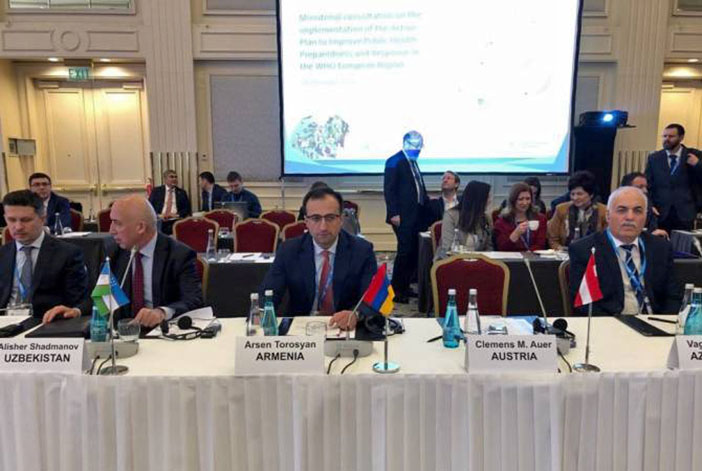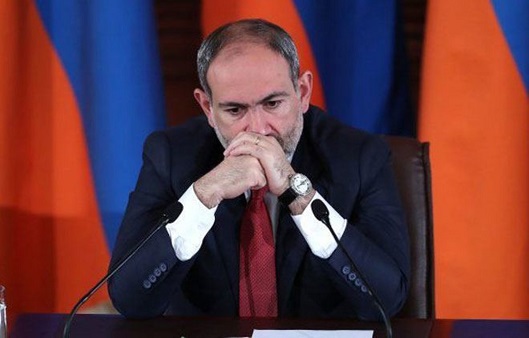With a ruling adopted in a federal court in Argentina on 29 March 2011, it has been decided that “The Turkish State has committed the crime of genocide to the detriment of the Armenian people during the period between 1915-1923”. From news in the press, it has been understood that Gregorio Hayrabetyan, an Argentinean of Armenian origin, had filed a lawsuit in 2000 against Turkey in relation to the genocide allegations, that seven Armenian organizations in Argentina had joined in on this lawsuit, and that the court had accepted the case and requested information from the UK, US, Germany and the Vatican on the 1915 events. Moreover, according to the press, the German government had sent the reports of the German Embassy and Consulates in the Ottoman Empire belonging to that period and the court had made a decision against Turkey with the logic that for Germany being the ally of the Ottoman Empire, the German documents should be trusted. Meanwhile, there is no information regarding why the court has not taken the Ottoman archives into consideration. There is a wealthy and similarly to the same extent, an influential Armenian community in Argentina. With the initiative of this community, the Argentina Parliament had adopted a resolution in 1993 which accepted the 1915 events as genocide and this resolution had been confirmed several times in the 2000’s. The Argentina Parliament embracing the Armenian allegations this much has turned into a crisis between the two countries and Prime Minister Erdoğan had cancelled his visit scheduled to be conducted in 2009. The President of Argentina, Cristina Fernandez de Kirchner’s visit to Ankara in January of this year had aroused hopes that a new leaf would be turned over in the relations between the two countries. However, although this court ruling does not reflect the Argentine Government’s stance, it has created doubts on the future of the two countries’ relations. The reaction of the Turkish Foreign Ministry to this court ruling has been rather harsh. In a statement delivered on April 4 concerning this issue, the Argentine court decision has been condemned and rejected and has been described as an abuse of the legal system. Moreover, it has been expressed that the decision was against the UN 1948 Convention and would not contribute to efforts aiming at normalization of relations between Turkey and Armenia. We believe that the most important question on this issue is whether a court of a state has competence or not on making decisions about another state. In general, there is no such competence. In some foreign countries, including Turkey, legal exemption is not given in disagreements arising from private law matters. However, it would have been expected from the Argentine Court to reject the lawsuit all the way in 2000 since the Hayrabetyan case does not carry this quality. On the other hand, according to the 6th article of the UN 1948 Convention on the Prevention and Punishment of the Crime of Genocide, whether an event is considered genocide or not could only be decided upon by a competent tribunal of the State in territory of which the act was committed or by the international penal tribunal. Furthermore, the same article states that persons charged with genocide (not states) will be tried. Therefore, the court should have rejected the lawsuit right from the start. The judge of the lawsuit Norberto Oyarbide must be aware of this situation because he has stated that his ruling is only “declarative” with no value other than the truth. In other words, this decision only displays the judge’s opinion on the 1915 events and does not create any other result. However, the 6th article of the 1948 Convention mentioned above has determined the organs which would decide on whether an event is genocide or not and any other court should not make decisions even if only “declarative”. Although Judge Oyarbide states that the ruling only aims at the truth, the lawyer of the plaintiff Efe has expressed that the decision will pave the way for the Armenian community to demand compensation from Turkey. On the other hand, it is possible for this ruling to form a precedent and for similar lawsuits to be filed in other countries in the future. As known, two lawsuits were filed in the US against Turkey in the last couple of months regarding the Armenian properties left behind and it is likely that other lawsuits will also be filed. Considering this case in Argentina within this framework also, it is possible to say that the Diaspora Armenians have started a legal struggle against Turkey.
© 2009-2025 Center for Eurasian Studies (AVİM) All Rights Reserved
EXPECTATION OF CONDOLONCE
REACTIONS TOWARD ERDOĞAN’S MESSAGE
THE NECESSITY FOR A NEW STRATEGY
 ATTEMPTS AT DIASPORIZING TURKISH ARMENIANS – III
ATTEMPTS AT DIASPORIZING TURKISH ARMENIANS – III
 CO-FOUNDER OF THE ARMENIAN REVOLUTIONARY FEDERATION AND ONE OF THE PRECURSORS OF ARMENIAN TERRORISM: KRISTAPOR MIKAELYAN
CO-FOUNDER OF THE ARMENIAN REVOLUTIONARY FEDERATION AND ONE OF THE PRECURSORS OF ARMENIAN TERRORISM: KRISTAPOR MIKAELYAN
 ONGOING TENSIONS IN THE SOUTH CAUCASUS
ONGOING TENSIONS IN THE SOUTH CAUCASUS
 THE REFLECTIONS OF THE 2020 KARABAKH WAR ON ARMENIA AND THE ARMENIAN DIASPORA
THE REFLECTIONS OF THE 2020 KARABAKH WAR ON ARMENIA AND THE ARMENIAN DIASPORA
 THE EU-RUSSIAN RELATIONS AND THE UKRAINIAN CONFLICT. THE ENERGY UNION, ASSOCIATION AGREEMENT AND GAS NEGOTIATIONS: WHOSE INTERESTS ARE AT STAKE?
THE EU-RUSSIAN RELATIONS AND THE UKRAINIAN CONFLICT. THE ENERGY UNION, ASSOCIATION AGREEMENT AND GAS NEGOTIATIONS: WHOSE INTERESTS ARE AT STAKE?




























